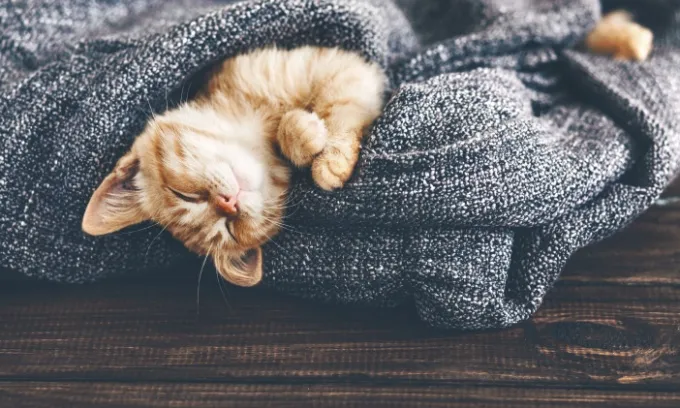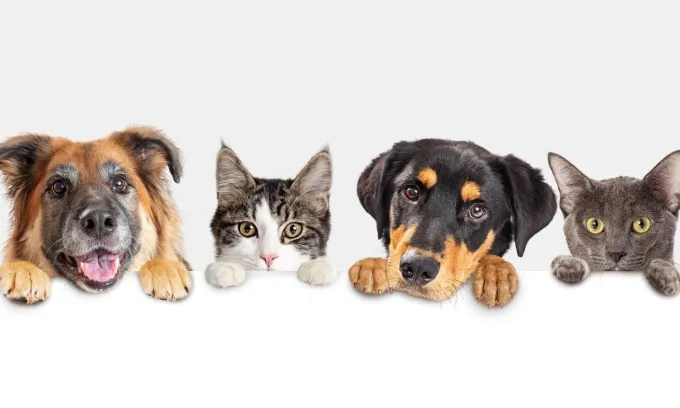Cats are well known for being independent and low-maintenance pets – they’re self-grooming, they don’t need you to take them for regular walks and they don’t usually need any formal training or obedience lessons. But much like cats themselves, the cost of owning one can climb fast. This is just one of the reasons why, despite their relatively low-maintenance nature, getting a kitten is a big commitment.
According to the RSPCA, cats can live up to 20 years. So, on top of the initial costs, you’ll also need to factor in ongoing expenses like food, annual vet checkups and pet insurance, should you choose to take it out. To give you an idea of how much this all could cost, the Australian Government’s MoneySmart estimates the average cat owner could fork out anywhere up to $6,000 in their cat’s first year, and up to $1,715 each year after that. If your cat lives to 20, that could equate to well over $30,000.
Compare Pet InsuranceWhat are the upfront costs of getting a kitten?
Upfront costs are the ones you’ll need to pay initially to acquire and comfortably set up your new kitten. Many of these will be one-off costs – like the adoption/purchase fee, desexing and microchipping fees, and buying accessories such as a collar and name tag.
Adoption/purchase fees
Depending on where you purchase your furry friend and what breed you choose, getting a kitten can cost you anywhere from nothing to thousands of dollars. Unless someone gifts you the kitten for free (perhaps from a neighbour or friend), it’s likely you’ll incur a cost, whether you adopt or buy.
Adopting a kitten from a rescue shelter could cost you around $200. For example, at the time of writing, RSPCA says that it charges $270 to adopt a kitten aged under six months old, and $220 to adopt a cat older than that.
Buying a kitten from a pet shop or breeder could be a bit more expensive, depending on the breed and rarity of the cat. According to Catster, a designer breed could set you back anywhere from $500 to $5,000, although if you do choose to buy from a breeder, then seeking out a reputable one is important.
Vet fees
Once you have your new companion, the RSPCA says you’ll encounter upfront vet costs for:
- Desexing: about $115-$300 (male or female)
- Flea and worming treatments: $100
- Kitten vaccinations: $170-$200
- Microchipping: $60
Some shelters and breeders may desex, vaccinate, microchip and give worm and flea treatment to your kitten before you take it home. This is likely to be reflected in the overall purchase fee. Keep in mind that it may be mandatory in some states to desex and microchip your kitten before it reaches a certain age.
Council registration fees
Depending on where you live, you may have to pay a cat registration fee to your local council. In some states and territories you must register your cat if it’s over three months old. In others, only dogs need to be registered. As the rules vary, it’s a good idea to check with your local council.
If you do need to pay registration fees, the costs will generally depend on whether your cat is desexed or not, and as registration fees are set by local councils, they can range significantly, so you might expect to pay anywhere from $30-$130 per year.
Accessories
From laser lights to moving mice, there’s a lot more than your average ball of yarn on offer these days to amuse your kitten. How much you actually spend on toys and accessories will depend on how much you want to shell out. In terms of essentials, the RSPCA suggests you’ll need to cover at least the following:
- Food and bowls: $370 upwards
- Carry cage and bed: $50-$100
- Collar and bell: $15-$50
- Grooming: $50 upwards
- Name tag: $6-$20
- Scratching post: $20-$300
- Toys and treats: $30 upwards
- Tray and litter: $130-$180
What are the ongoing costs of having a kitten?
After covering the upfront costs, there are a number of ongoing expenses like cat food, kitty litter, annual vet checkups and pet insurance to think about. On the bright side, MoneySmart says you may be able to reduce some costs by grooming your cat yourself and DIYing any toys, treats and play structures. You could also keep an eye out for sales, get quotes from a number of vets and shop around to find the best insurance policy to suit both your and your cat’s needs.
Insurance
If your cat becomes sick or injured and needs veterinary care, pet insurance may help you claw back some of the costs. The cost of pet insurance will largely depend on your cat’s breed and age. As a general rule, premiums will be more expensive as your cat gets older and its risk of injury or illness increases.
According to recent Canstar data, the average annual premium for accident and illness pet insurance for cats, based on age, is as follows:
- younger than 1 year: $560
- 2–3 years: $644
- 4–5 years: $745
- 6–7 years: $894
Vet visits/medical costs
Throughout its life, your cat will need regular visits to the vet for checkups and treatments. This may increase as your cat ages and becomes more likely to encounter health problems. According to the RSPCA, the average cost of annual vaccinations and vet checkups is at least $80, presuming there is no major issue with your pet’s health. Additional health expenses, like flea and worming treatments, will cost you between $100-$150 each year.
You may also face additional costs if you choose to get a ‘grumpy’ flat-faced cat – such as Persian, Himalayan, British and Exotic Shorthair breeds. Like their dog equivalents, French bulldogs and pugs etc, these types of cats can suffer from breathing problems and may be more susceptible to conditions like heat stroke, according to Perth Vet Emergency. Consider doing your research on different breeds before making a commitment.
Food, litter and toys
The RSPCA says you’re likely to spend upwards of $370 per year on food and $120 on litter. The price of treats and toys will vary depending on how much you want to spoil your cat.
Grooming
Although they are self-grooming animals, according to the RSPCA, cats can still benefit from regular checking, grooming and cleaning. For example, cat claws need regular trimming to avoid both damage to you and your furniture and to prevent your cat from getting sore, broken claws. The RSPCA estimates grooming costs will add up to about $50 per year. Of course, this could vary depending on what breed your cat is and how frequently you groom it. Additionally, if you decide to enlist the help of a professional, grooming will likely cost you a bit more. That said, expert grooming assistance may minimise the risk of you hurting your cat – while clipping its claws, for example – and indeed the risk of it scratching you!
Getting a kitten is a big financial commitment, so it’s worth weighing up the various costs involved before you commit to bringing your furry companion home. Keep in mind that your expenses may increase as your cat gets older and its likelihood of developing health problems increases.
If you’re considering taking out pet insurance for a level of protection from unexpected vet costs, you can compare your options with Canstar.
Cover image source: Alena Ozerova (Shutterstock)








